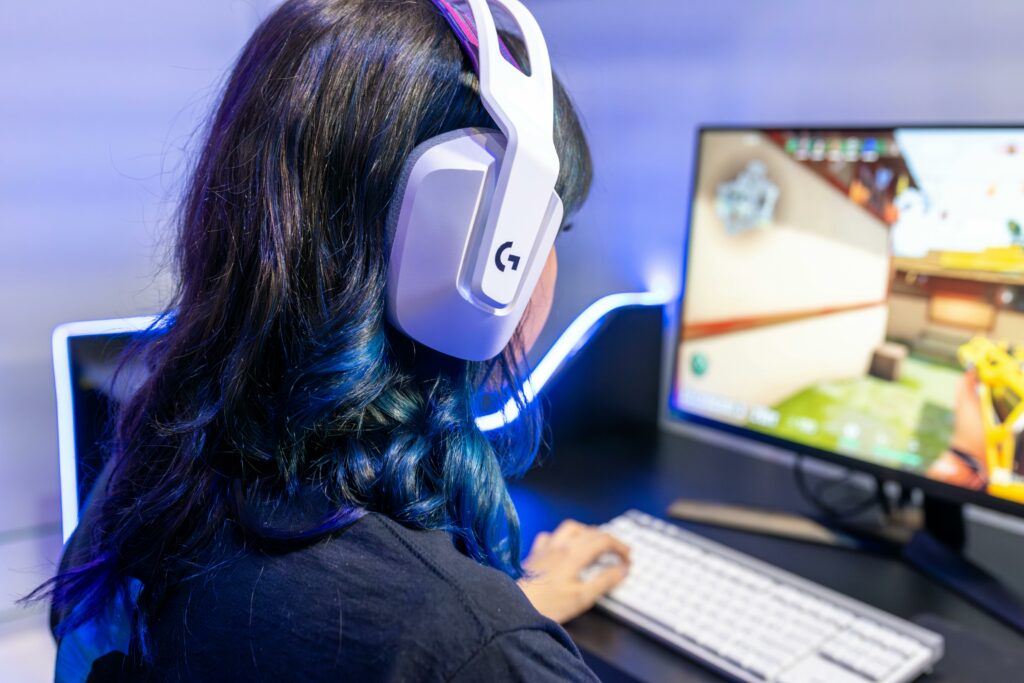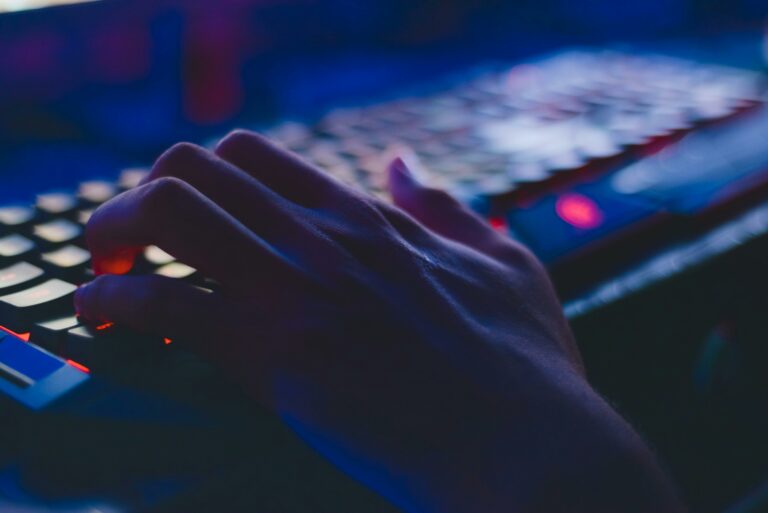
Artificial Intelligence (AI) is transforming the gaming industry in numerous ways, from enhancing gameplay to making experiences more immersive. However, one of AI’s most profound impacts is its role in promoting healthier gaming experiences. AI is helping to address concerns like gaming addiction, screen time management, and even mental and physical well-being.
With the increasing number of gamers worldwide, AI-driven solutions are necessary to ensure that players enjoy games responsibly without negatively affecting their health. This article explores how it contributes to making gaming healthier and more balanced.
Exploring the link between gaming and health
Gaming is a popular hobby enjoyed by many, but excessive engagement can lead to various health concerns. Physically, gamers may experience eye strain from prolonged screen time, poor posture, and back pain due to long hours of sitting. Additionally, a sedentary lifestyle associated with gaming can increase the risk of obesity and cardiovascular diseases.
On the mental health side, gaming can pose its own challenges. Some individuals may struggle with gaming addiction, finding it difficult to disconnect from their devices.
According to TorHoerman Law, the consequences of excessive gaming and video game addiction can be severe. The issues include anxiety, depression, diminished social interaction, and physical injuries.
As a result, major gaming companies are facing lawsuits such as the video game lawsuit for allegedly designing their games to be addictive. The lawsuit claims that younger audiences are more at risk.
Families affected by these issues are seeking compensation for the negative impacts of gaming addiction. These impacts include mental health problems, financial losses, and emotional distress.
Additionally, a study published in ScienceDirect emphasizes the psychological mechanisms that are triggered by loot boxes, likening them to gambling behaviors. It also highlighted concerns regarding their accessibility to minors.
How AI is revolutionizing healthier gaming
AI plays a transformative role in the gaming industry, particularly in promoting healthier gaming habits. Here are several ways AI is revolutionizing healthier gaming:
AI-driven personalization for player well-being
The global market for AI in gaming is projected to experience remarkable growth. It will be reaching approximately USD 28.0 billion by 2033 as per Market.US. This expansion represents a compound annual growth rate (CAGR) of 28.40% during the forecast period from 2024 to 2033.
As this market evolves, AI technology has the potential to significantly enhance player well-being. By analyzing gaming habits, AI can provide personalized recommendations that promote a healthier balance between gaming and overall well-being. For instance, it can issue break reminders based on the duration of gameplay, encouraging players to take regular pauses.
Additionally, AI can make adjustments in screen brightness to help mitigate eye strain during extended sessions. This proactive approach not only enhances the gaming experience but also prioritizes players’ physical health. Furthermore, it can introduce healthier in-game rewards for players who take necessary breaks. This reinforces positive habits while ensuring that gameplay remains engaging.
Monitoring and managing screen time with AI
AI-powered tools are increasingly being used to track players’ gaming hours and send alerts when excessive gaming is detected. These tools play a crucial role in promoting healthier gaming habits. Many platforms also integrate parental controls, allowing caregivers to manage and regulate children’s gaming activities effectively.
A study published in Ophthalmology Times Europe has concluded that AI-based notifications can significantly monitor and improve children’s screen time habits. This capability highlights the importance of AI in addressing the growing concerns about myopia.
It also helps tackle other health issues caused by excessive digital screen use. By providing timely reminders and insights, AI helps ensure that gaming remains a balanced and enjoyable activity.
AI for reducing gaming addiction
AI is playing a vital role in tracking unhealthy gaming behaviors and notifying players or their guardians when excessive playtime is detected. PsyPost says that according to a study, nearly 20% of participants were identified as being at risk for gaming disorder.
The AI models developed in this research analyzed various data points, such as user-avatar bond scores, age, and gaming duration. They effectively predicted the risk of gaming disorder.
This innovative approach proves how AI and machine learning can be used to identify mental health risks associated with gaming. By focusing on the user-avatar bond, these models provide valuable insights into gaming behavior and its potential implications for mental health.
Many games are now incorporating AI-powered features that enforce cooldown periods or suggest alternative activities after extended play sessions. Additionally, some games integrate AI nudges that remind players to stretch, hydrate, or take mental breaks, promoting healthier habits.
FAQs
1. How does AI detect and reduce toxic behavior in online games?
Through real-time detection and remediation of harmful behavior, AI contributes to the creation of safer gaming environments. It analyzes chat logs, voice interactions, and player actions using machine learning. Once harmful behavior is flagged, AI can mute, warn, or ban players, ensuring a more positive gaming experience.
2. What is the future of AI in health and wellness in the gaming industry?
AI will play a crucial role in improving gaming health by integrating real-time biometric tracking, emotional recognition, and personalized well-being features. Future advancements may include AI-driven mental health support and adaptive difficulty levels to reduce frustration. Additionally, tools to prevent gaming addiction can help ensure a balanced and healthy experience for players.
3. Can AI improve mental health in gaming?
AI contributes to better mental health in gaming by recognizing signs of stress, anxiety, or frustration. It can suggest mindfulness exercises, recommend taking breaks, or provide supportive messages. AI-driven virtual assistants also offer real-time help, ensuring players maintain a healthy and enjoyable gaming experience.
As gaming becomes more prevalent worldwide, AI-driven solutions are not just beneficial but essential. They help ensure that gaming remains a positive and enriching activity. As we adopt these innovations, the potential of AI to improve player health and well-being becomes increasingly clear. This paves the way for a future where gaming can thrive without harming physical or mental health.



